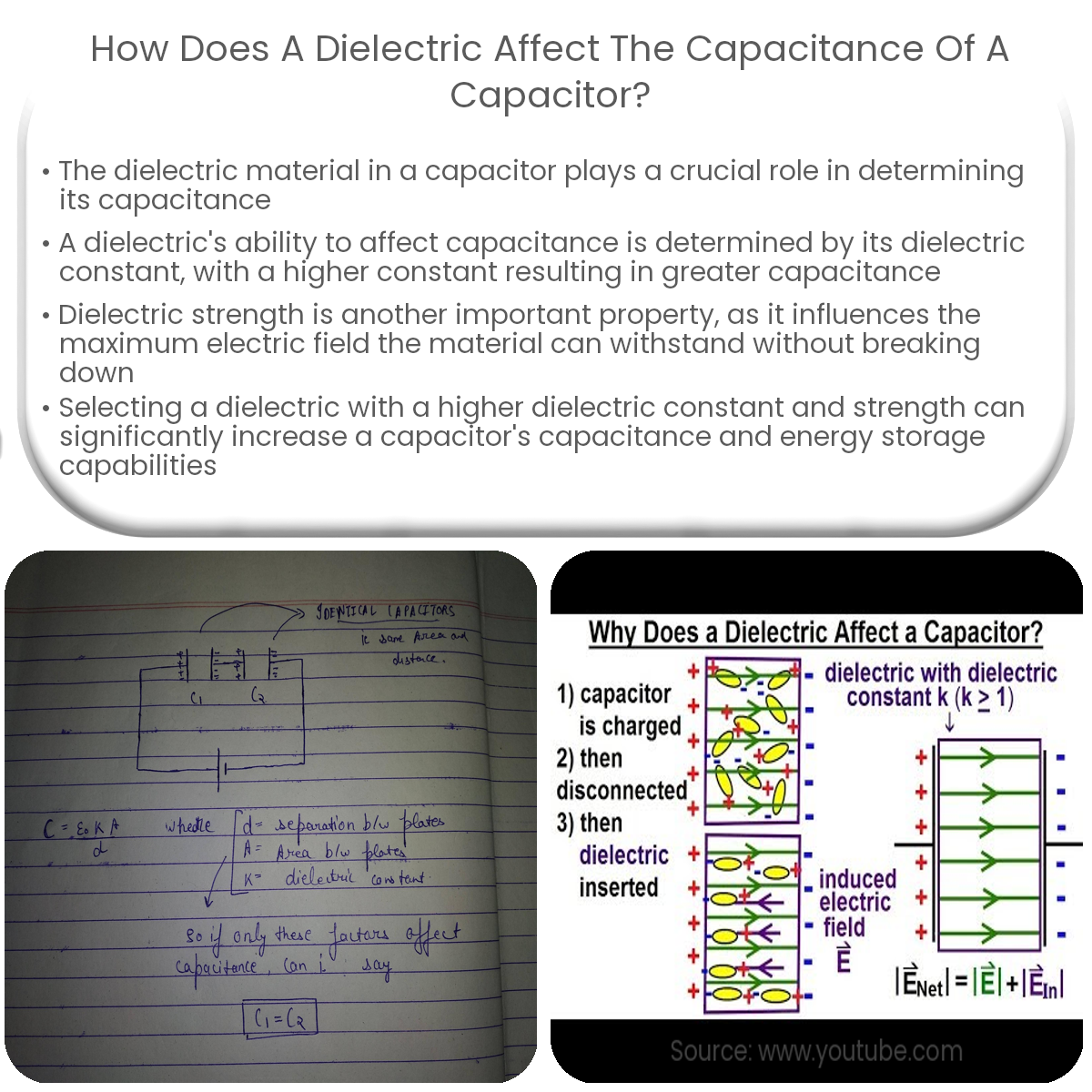A dielectric increases a capacitor’s capacitance by raising its dielectric constant, allowing it to store more electrical energy in the same space.
How Does a Dielectric Affect the Capacitance of a Capacitor?
A capacitor is a two-terminal electronic component that stores electrical energy in an electric field. It consists of two conductive plates separated by an insulating material, called a dielectric. The capacitance of a capacitor is determined by the surface area of the plates, the distance between them, and the properties of the dielectric material. This article will explore how the dielectric affects the capacitance of a capacitor.
Dielectric Constant and Capacitance
The ability of a dielectric material to affect capacitance is determined by its dielectric constant, also known as relative permittivity (εr). The dielectric constant is a dimensionless quantity that indicates how effectively a dielectric material can support an electric field compared to a vacuum. The higher the dielectric constant, the greater the capacitance of the capacitor.
The capacitance of a capacitor can be calculated using the formula:
C = ε0εrA/d
where C is the capacitance, ε0 is the permittivity of free space, εr is the relative permittivity (dielectric constant) of the dielectric material, A is the surface area of the plates, and d is the distance between the plates. As seen in the formula, the capacitance of a capacitor is directly proportional to the dielectric constant.
Dielectric Strength and Breakdown
Another important property of dielectrics is dielectric strength, which is the maximum electric field a dielectric material can withstand without experiencing breakdown. Dielectric breakdown occurs when the electric field within the dielectric becomes so strong that it causes the dielectric material to become conductive, allowing a current to flow between the capacitor plates.
Using a dielectric with a higher dielectric strength allows a capacitor to handle higher voltages without experiencing breakdown. In turn, this can increase the overall capacitance of the capacitor, as the plates can be brought closer together without the risk of dielectric breakdown.
Effect on Energy Storage
Since capacitance is a measure of a capacitor’s ability to store electrical energy, increasing the dielectric constant of the dielectric material will also increase the energy storage capacity of the capacitor. This is particularly important for applications where high energy storage is required, such as in power electronics and energy storage systems.
In summary, the dielectric material used in a capacitor plays a crucial role in determining its capacitance. By selecting a dielectric with a higher dielectric constant and dielectric strength, the capacitance and energy storage capabilities of a capacitor can be significantly increased.


